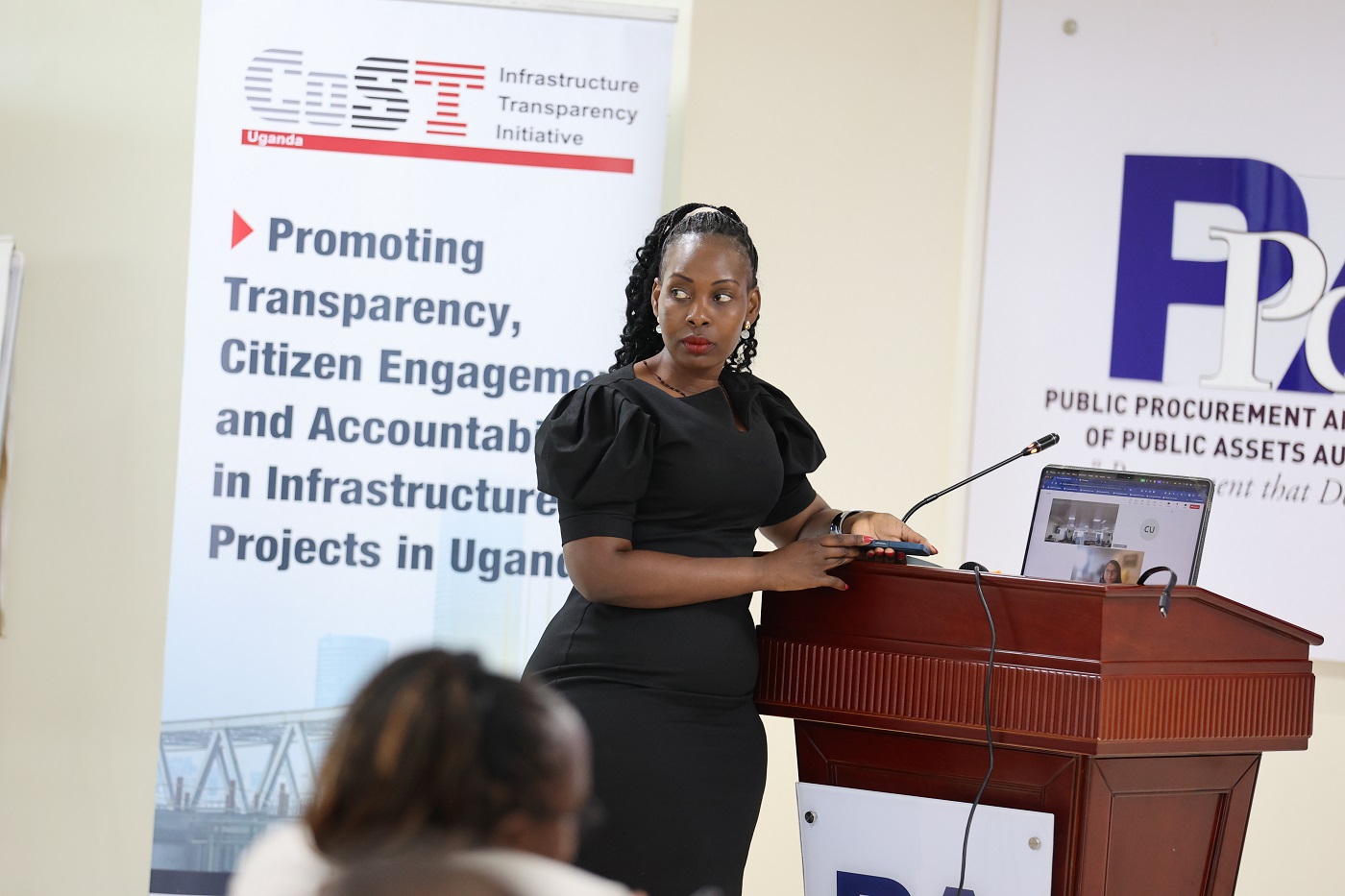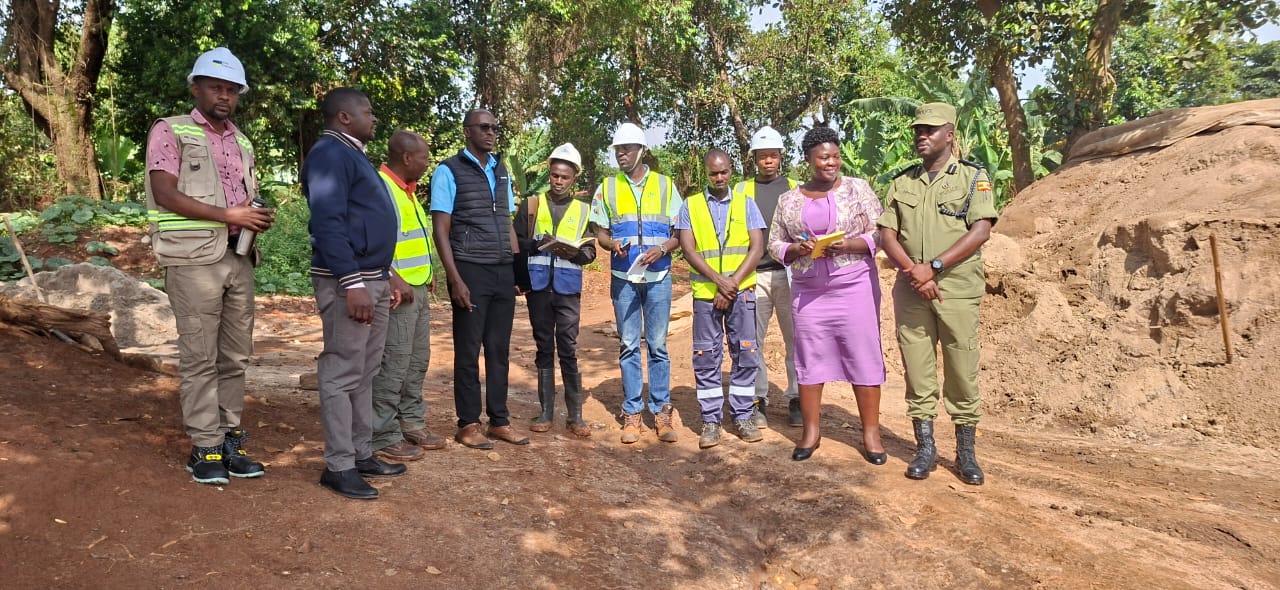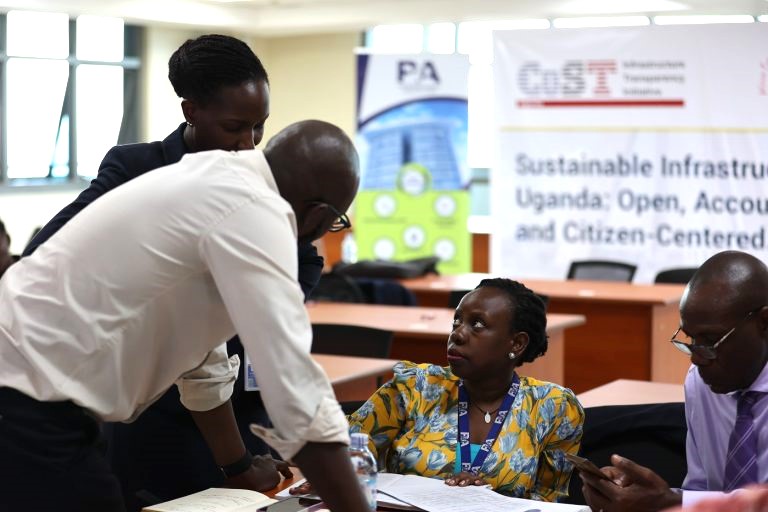
The selected Journalists pose for a Group Photo at the end of the Day-long training held at Hilton Garden Inn Kampala Uganda on April 10 2025 PHOTO/CoST UGANDA
KAMPALA, Uganda | April 10 [SHIFTMEDIA] – As Uganda grapples with a surge in ‘failed’ infrastructure projects, especially in Kampala, a silent army is being mobilized—not with bricks or blueprints, but with pens, microphones, and investigative zeal. A new wave of journalists trained under the Infrastructure Transparency Initiative (CoST) Uganda is preparing to unearth the truth behind the nation’s pothole-ridden roads, delayed bridges, and flood-prone drainage systems.
At a one day media capacity building workshop held at Hilton Garden Hill Kampala, seasoned investigative reporters were equipped with the tools to dissect murky procurement deals, uncover wasteful spending, and track down ghost contractors. The initiative, spearheaded by CoST Uganda in partnership with government agencies and civil society, seeks to pull back the curtain on infrastructure development once shielded from public scrutiny.
Journalists Tipped Regarding the cost of silence
Behind the rising waters flooding Kampala’s streets, that left at least seven (7) persons dead recently, and the cracked pavements of rural districts lie billions of shillings in opaque contracts and unchecked corruption. M/s Olive Kabatwairwe (below), CoST’s Africa Regional Manager and Learning Lead, minced no words: “Floods are just a symptom. If we want to treat the disease, journalists must dig deeper—the citizens must be sensitized regarding disposing of garbage into drainage channels when its raining- we need a mindset change among our population.”

m/s Olive Kabatwairwe
The media has over the years -been empowered by CoST Uganda to demand for accountability and transparency from decision makers—and to turn the tide against Uganda’s long-standing infrastructure rot.
Over the past three years, CoST Uganda’s assurance reports have painted a damning picture. The 5th Assurance Report, released in 2023, revealed glaring inconsistencies in project timelines and cost overruns. It found that out of 24 public infrastructure projects assessed across eight local governments, nearly half lacked feasibility studies, while others showed inflated budgets without justification. In one case in Nwoya District, a road meant to cost UGX 1.2 billion ballooned to UGX 1.8 billion, yet lacked corresponding physical progress.
Earlier, the 4th Assurance Report (2021) uncovered that 57% of sampled infrastructure projects failed to adhere to required procurement timelines, with some tenders awarded before design plans were finalized—a practice that raises red flags for corruption and mismanagement. The report also flagged poor public access to information, noting that while government entities were mandated to disclose 31 key data points, the majority only met half the requirement.
In response to such alarming trends, Geoffrey Odong (below), CoST Uganda’s Manager, announced a partnership with Kampala Capital City Authority (KCCA) to pilot a project modeling system using 32 data points under the new Open Contracting for Infrastructure Data Standards (OC4IDS).



